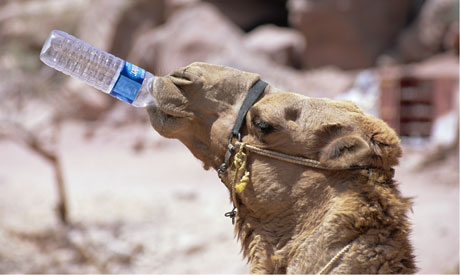What does the Arab world do when its water runs out?
Water usage in north Africa and the Middle East is unsustainable and shortages are likely to lead to further instability – unless governments take action to solve the impending crisis

Poverty, repression, decades of injustice and mass unemployment have all been cited as causes of the political convulsions in the Middle Eastand north Africa these last weeks. But a less recognised reason for the turmoil in Egypt, Tunisia, Algeria, Yemen, Jordan and now Iran has been rising food prices, directly linked to a growing regional water crisis.
The diverse states that make up the Arab world, stretching from the Atlantic coast to Iraq, have some of the world's greatest oil reserves, but this disguises the fact that they mostly occupy hyper-arid places. Riversare few, water demand is increasing as populations grow, underground reserves are shrinking and nearly all depend on imported staple foods that are now trading at record prices.
For a region that expects populations to double to more than 600 million within 40 years, and climate change to raise temperatures, these structural problems are political dynamite and already destabilising countries, say the World Bank, the UN and many independent studies.
READ FULL POST HERE
No comments:
Post a Comment